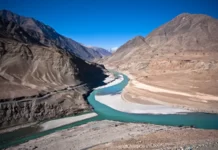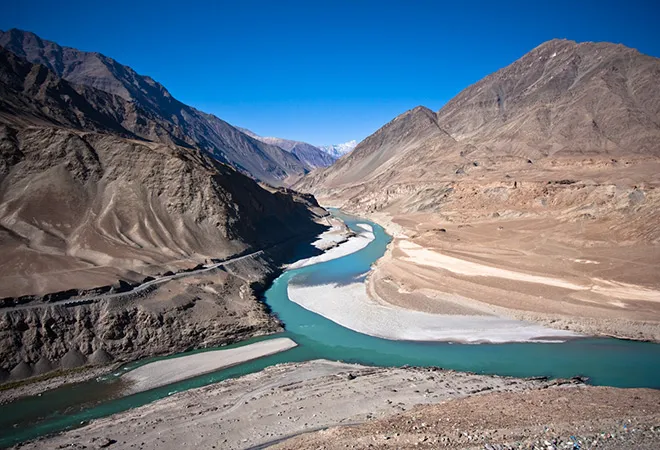India has suspended the Indus Waters Treaty with Pakistan following a deadly attack in Indian Illegally Occupied Jammu and Kashmir (IIOJK) that killed 26 tourists and left 17 others injured. The move was announced on Wednesday by Foreign Secretary Vikram Misri, who briefed the media in New Delhi after an emergency cabinet meeting chaired by Prime Minister Narendra Modi.
“The Indus Waters Treaty of 1960 will be held in abeyance with immediate effect, until Pakistan credibly and irrevocably abjures its support for cross-border terrorism,” Misri said, signaling a significant departure from decades of water-sharing cooperation—even during times of war and diplomatic breakdown.
In parallel to the treaty suspension, India has taken a raft of measures to downgrade bilateral relations. The Attari-Wagah border crossing, a key conduit for civilian and trade movement, has been closed with immediate effect. Pakistani nationals currently in India have been told to leave the country within 48 hours, and no further entries under special visa arrangements will be allowed.
The Indian government has also expelled all Pakistani military advisors posted at its High Commission in New Delhi. In response, India will recall its own three military service advisers and five auxiliary staff from Islamabad. Additionally, India has asked Pakistan to reduce its diplomatic staff in New Delhi from 55 to 30.
The decisions were made public shortly after Tuesday’s mass shooting in Pahalgam, a scenic town located 90 kilometers from Srinagar, which is popular with both domestic and foreign tourists. Gunmen opened fire on a group of visitors, resulting in a heavy security crackdown. The Indian army later claimed to have killed two suspected fighters in a separate incident in the Uri sector and launched a manhunt for the attackers across forested terrain near the site of the shooting.
A previously unknown group calling itself “The Resistance Front” has claimed responsibility, according to Indian media reports. However, no official confirmation of the group’s involvement has been provided by authorities.
Prime Minister Modi condemned the killings as a “heinous act” and vowed a decisive response. Defence Minister Rajnath Singh added that those responsible—both inside and outside India—would be punished.
In Islamabad, the Pakistani government expressed concern at the loss of life. Foreign Minister Ishaq Dar confirmed on X (formerly Twitter) that Prime Minister Shehbaz Sharif had called an emergency meeting of the National Security Committee (NSC) for Thursday morning. The NSC, comprising military chiefs, intelligence heads, and top cabinet ministers, will convene to formulate Pakistan’s official response to the situation.
























